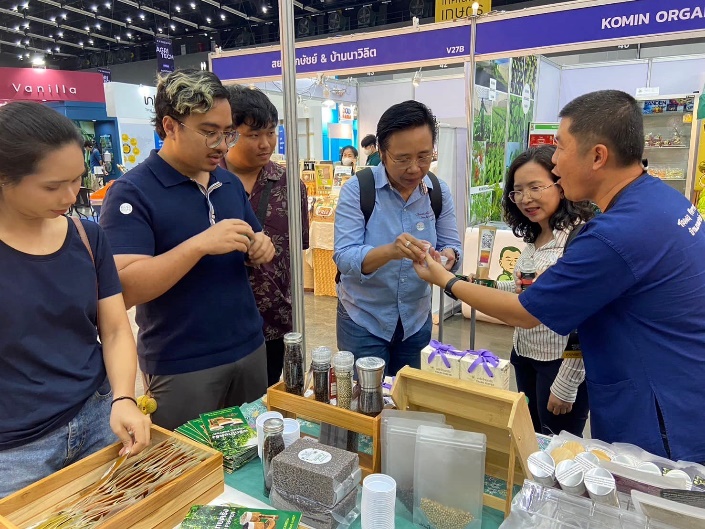Reporters: Mr. Sujinda Saehan, Mr. Ekkajak Intarat, Mr. Nitigon Jumniansuk, Mr. Thanet Sangseejun
Evidence Date: July 19th, 2024
Related SDGs: 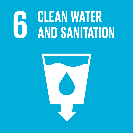
Related Indicators: 6.5.1, 6.5.3, 6.5.4, 6.5.5, 6.5.6, 6.5.7
Details:
The research project titled “Innovative Production of Biodegradable Pots from Water Hyacinth for Sustainable Waste Management”, led by Assistant Professor Dr. Prasert Nontakan and his research team from the Faculty of Science, Rajamangala University of Technology Srivijaya (RUTS), Thailand, represents a remarkable advancement in sustainable innovation and environmental protection. Supported by institutional research funding, this initiative addresses a pressing environmental issue by transforming water hyacinth (Eichhornia crassipes)—an invasive aquatic weed—into a valuable raw material for producing biodegradable plant pots. Through this initiative, the research team demonstrates how science, technology, and environmental awareness can come together to create practical solutions for sustainable waste management.
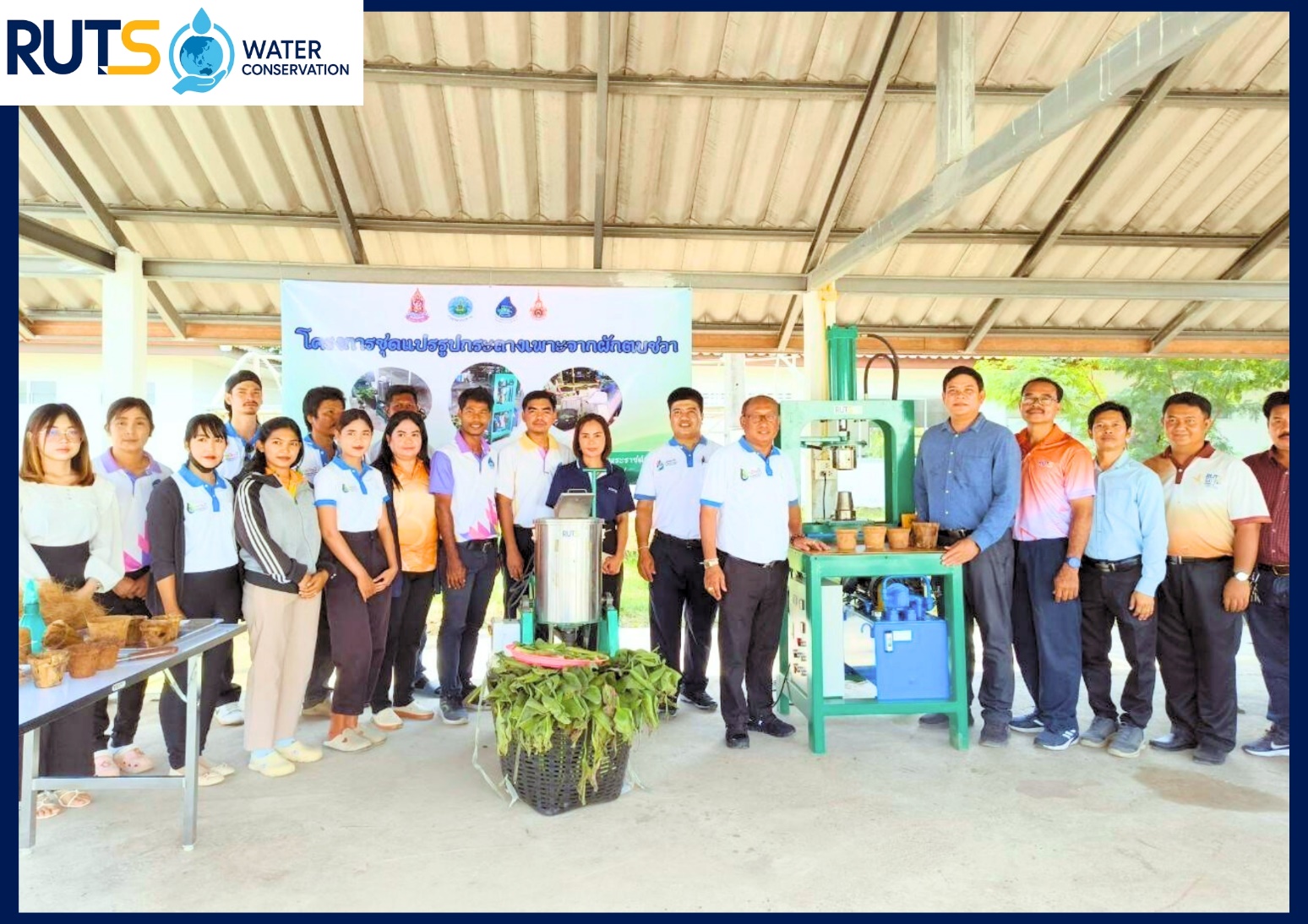
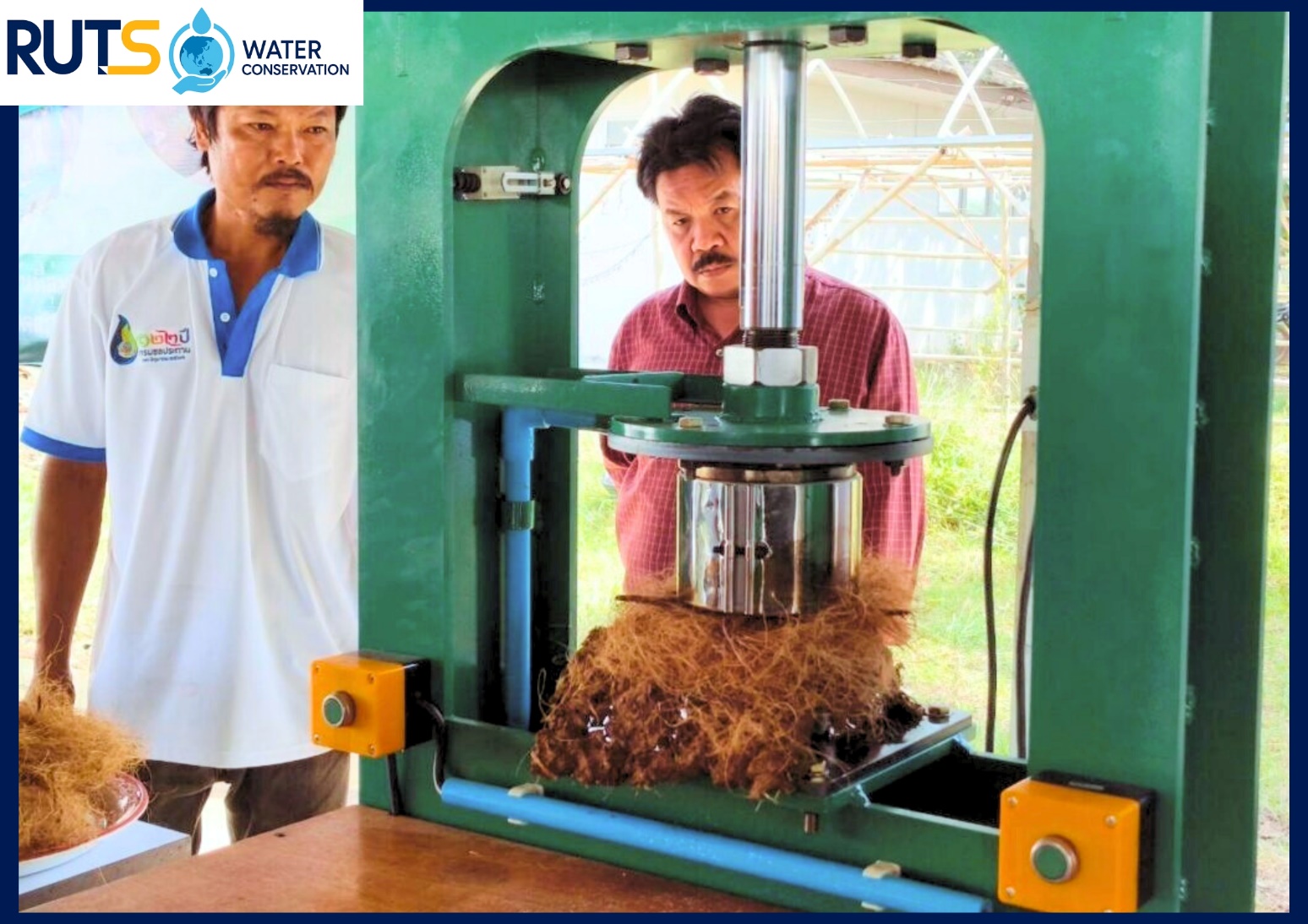
Water hyacinth is one of the most problematic aquatic plants in Thailand. Its rapid growth clogs rivers and canals, obstructs water transportation, reduces aquatic biodiversity, and deteriorates water quality by depleting oxygen levels. Recognizing these challenges, the research team sought to convert this environmental nuisance into a sustainable resource. By utilizing water hyacinth as a key raw material, the project not only promotes waste valorization—the process of turning waste into useful products—but also contributes to aquatic ecosystem restoration by reducing the spread of this invasive species.
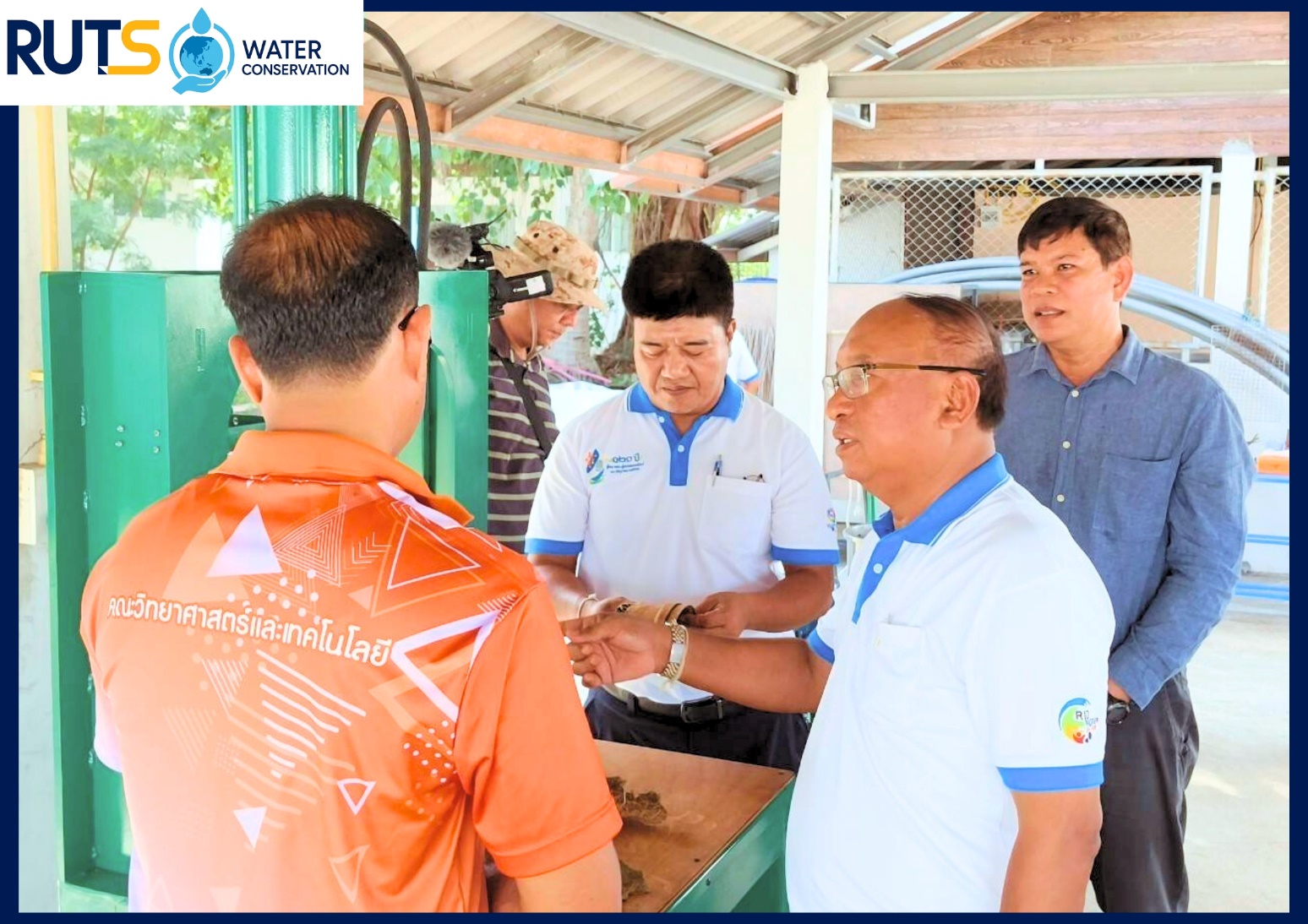
The main objective of the study was to develop biodegradable pots using a combination of water hyacinth fibers, cassava starch, and cassava residues as natural binding agents. This approach minimizes dependence on synthetic and non-biodegradable materials while supporting local agriculture by adding value to cassava by-products that are often discarded as waste. The project therefore integrates environmental protection with rural economic development, showcasing a model of circular economy practices within Thailand’s agricultural sector.
To identify the most effective formulation, two types of biodegradable pots were produced and tested for mechanical strength, durability, and degradation performance. The experimental results indicated that mixing ratios of 5:5 and 6:4 (fiber to binder) provided an optimal balance between strength and biodegradability. This balance ensures that the pots are durable enough for plant growth yet capable of decomposing naturally after use, thus eliminating the problem of plastic waste accumulation.
The degradation tests were conducted over a period of 12 weeks under natural environmental conditions. Complete decomposition was achieved within 44 days, with visible signs of deterioration—such as fiber detachment, mold growth, and swelling—appearing as early as the third week. When compared to traditional coconut fiber pots, the biodegradable pots made from water hyacinth decomposed at a faster rate, confirming their effectiveness as environmentally friendly alternatives. Additionally, plant growth trials demonstrated that these biopots provided sufficient stability for seedlings, making them highly suitable for applications in horticulture, reforestation, and nursery production.
Encouraged by the successful results from laboratory testing, the research has been expanded to explore large-scale production. The development of specialized processing machines now allows for the mass production of water hyacinth-based biopots, paving the way for commercial implementation. This technological advancement not only enhances production efficiency but also empowers local communities and small enterprises to engage in environmentally responsible manufacturing. Such innovation supports green entrepreneurship, reduces plastic waste, and contributes to long-term environmental sustainability.
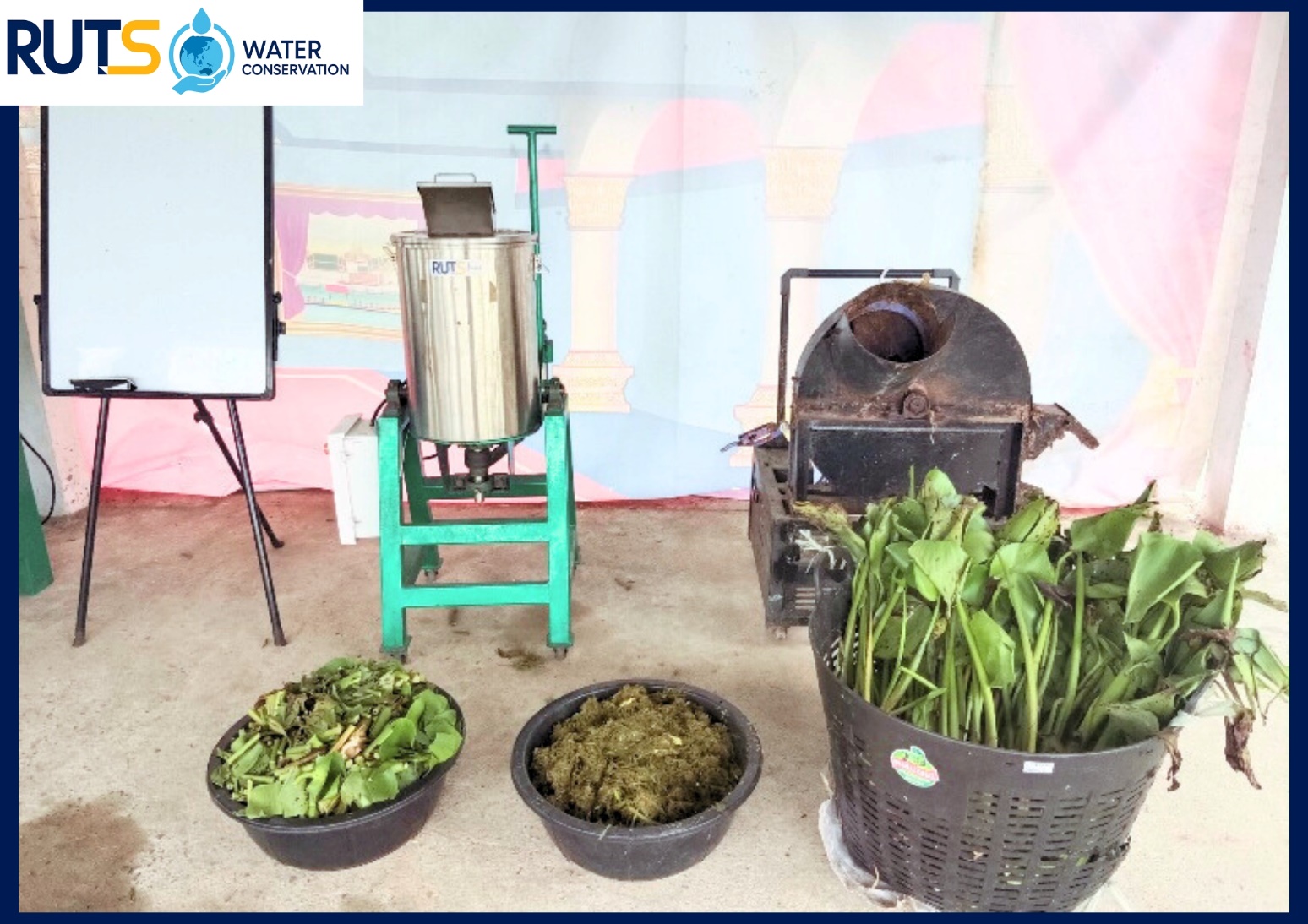
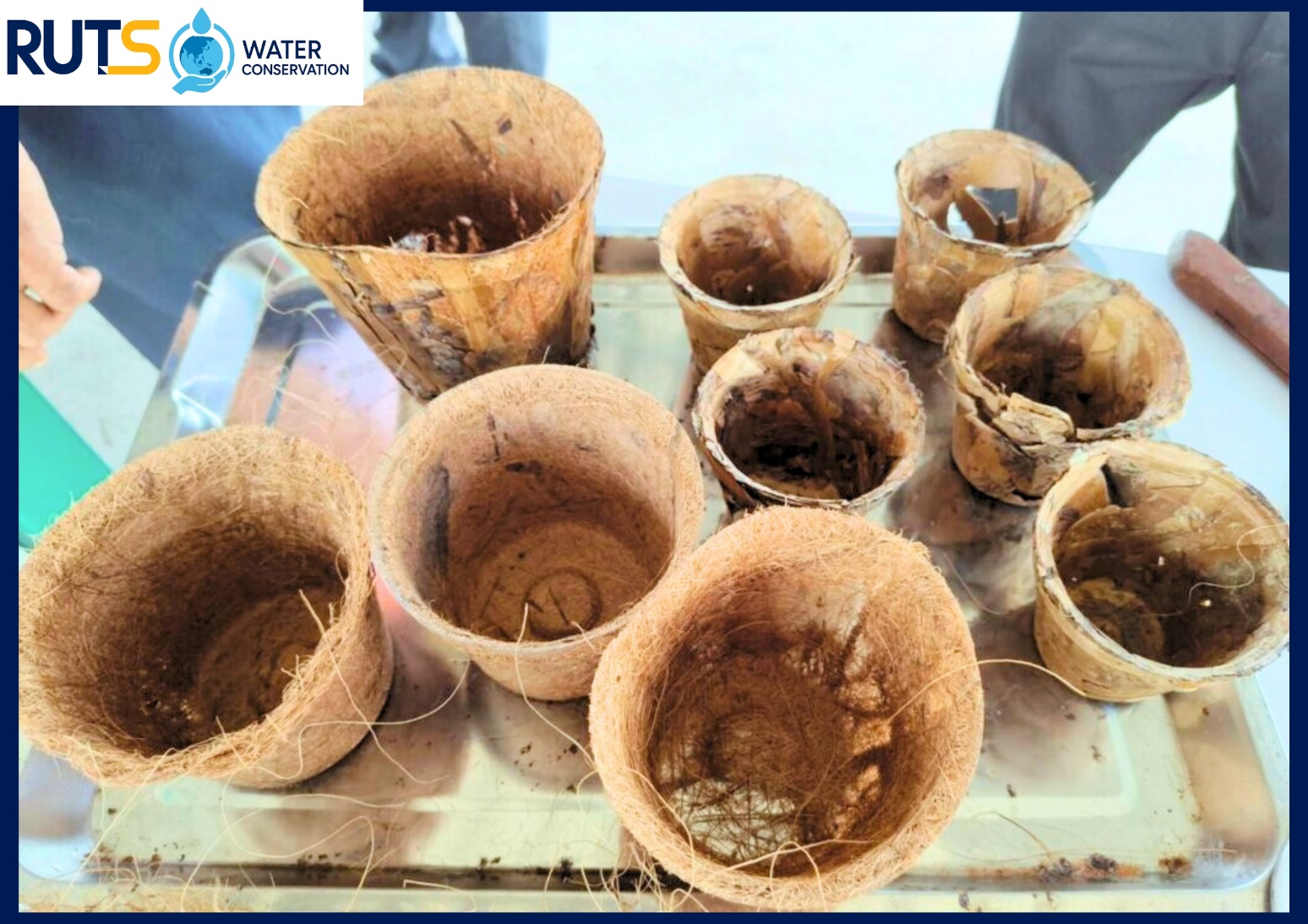
Overall, the project serves as an inspiring example of how scientific research can directly address environmental challenges while fostering economic resilience. By converting an invasive aquatic plant into a biodegradable product, the initiative aligns with Thailand’s efforts toward sustainable development and environmental conservation. It reduces pollution, promotes responsible production, and restores natural waterways. The Innovative Production of Biodegradable Pots from Water Hyacinth project exemplifies how innovation, sustainability, and community engagement can work hand in hand to create a cleaner, greener, and more sustainable future for all.
The project aligns with multiple United Nations Sustainable Development Goals (SDGs) by addressing environmental, social, and economic sustainability. It supports SDG 6: Clean Water and Sanitation through the removal and utilization of water hyacinth from natural waterways, helping to restore water flow, improve water quality, and prevent eutrophication, thereby promoting healthier aquatic ecosystems and sustainable water management in local communities. In line with SDG 12: Responsible Consumption and Production, the research applies circular economy principles by transforming agricultural and aquatic waste into biodegradable products, reducing dependence on non-renewable resources. It also contributes to SDG 13: Climate Action by replacing plastic materials with biodegradable alternatives, lowering greenhouse gas emissions and mitigating plastic pollution. Furthermore, by protecting aquatic biodiversity and minimizing terrestrial pollution, the project supports SDG 14: Life Below Water and SDG 15: Life on Land, fostering ecological balance. Finally, the development of large-scale processing technology advances SDG 9: Industry, Innovation, and Infrastructure, showcasing sustainable innovation and encouraging the growth of green industries.
The biodegradable water hyacinth pot project demonstrates how science and innovation can address multiple environmental challenges simultaneously—reducing waste, improving water ecosystems, and supporting sustainable agriculture. Through this initiative, RUTS reinforces its commitment to environmental stewardship, community development, and the advancement of the United Nations Sustainable Development Goals. The outcomes of this research pave the way for replicable eco-innovations that harmonize local resource use with global sustainability imperatives.
Related Links:



